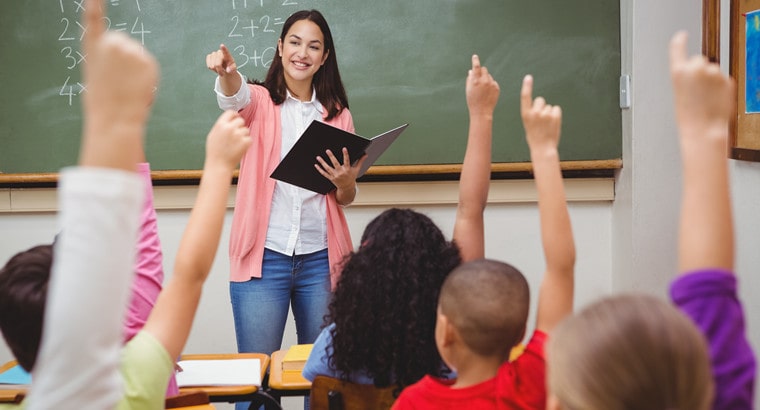Teaching is an evolving art form that demands continuous growth, adaptation, and a deep commitment to fostering the intellectual and emotional development of students. In the modern educational landscape, where the diversity of student needs and the rapid pace of technological change present both challenges and opportunities, educators are called upon to refine and expand their teaching skills constantly.
This dynamic context makes the pursuit of excellence in teaching not just a professional obligation but a journey of lifelong learning. The effectiveness of an educator stretches beyond their knowledge of the subject matter, embedding itself in the ability to engage, inspire, and adapt to the changing educational environment.
The following tips provide actionable strategies for educators aiming to enhance their teaching skills and create a more impactful learning experience for their students.
1. Stay Updated with Educational Trends
The field of education is continually evolving, with new research, technologies, and pedagogical theories emerging regularly. Staying informed about these developments is crucial for educators looking to enhance their teaching methods. This can be achieved through various means, such as subscribing to educational journals, joining professional associations, or participating in online forums and communities where educators share insights and experiences.
Engaging with the latest educational trends not only broadens an educator’s repertoire of teaching strategies but also ensures that their students benefit from the most current and effective learning practices.
2. Enhance Your Educational Background
A strong educational foundation is paramount for any educator seeking to improve their teaching skills. Teachers struggling to manage and effectively engage children in elementary school will find that enhancing their educational background can provide the tools and strategies needed to overcome these challenges.
One of the options for achieving this is to pursue an elementary education bachelors degree online. This degree not only broadens one’s knowledge base but also improves specific skills critical to effective teaching. It focuses on equipping educators with competencies in special education, crafting individualized education programs, detailed lesson planning, comprehensive curriculum development, and effective classroom management. These skills are indispensable in creating an inclusive and adaptive learning environment that meets the needs of all students.
Furthermore, completing this degree opens the door to various professional roles, such as Elementary Education Teacher, Kindergarten Teacher, and K-6 Teacher. Pursuing an elementary education BSE offers the flexibility and depth needed to thrive in these positions, making it a valuable step for educators committed to their professional growth and the success of their students.
3. Utilize Technology in the Classroom
The integration of technology into educational settings has opened new avenues for engagement, interaction, and personalized learning. Educators can harness a variety of digital tools and resources to create dynamic and interactive lessons that cater to the diverse learning styles of their students.
From educational apps and online games to virtual field trips and interactive whiteboards, technology can make learning more accessible and enjoyable. By becoming proficient in these tools, educators can not only enhance the learning experience but also prepare students for the technological demands of the future.
4. Foster an Inclusive Classroom Environment
An inclusive classroom acknowledges, respects, and values the diversity of students’ experiences, backgrounds, and abilities. Educators play a critical role in creating an environment where all students feel seen, heard, and supported. This involves being mindful of cultural differences, employing teaching materials that reflect a range of perspectives, and adopting teaching strategies that accommodate various learning needs.
By fostering inclusivity, educators can promote a sense of belonging and community among students, which is essential for effective learning and personal development.
5. Implement Active Learning Techniques
Active learning stands as a pivotal strategy in the modern educational paradigm, shifting the focus from teacher-led lectures to student-centered activities. This approach encourages students to engage directly with the material through discussions, problem-solving sessions, and collaborative projects, fostering a deeper understanding and retention of knowledge.
By incorporating active learning techniques, educators can stimulate students’ critical thinking skills and promote a more dynamic and interactive classroom environment. Strategies such as think-pair-share, peer teaching, and case studies not only make learning more engaging but also prepare students for real-world challenges by enhancing their analytical and collaborative skills.
6. Develop Effective Communication Skills
Effective communication is the cornerstone of successful teaching. It encompasses not only the clarity of speech and presentation but also the ability to listen and respond to students’ queries and concerns with empathy and understanding. Developing these skills can significantly improve classroom dynamics and create a supportive learning environment.
Techniques such as active listening, non-verbal communication cues, and constructive feedback are essential for fostering open lines of communication. Moreover, clear and effective communication extends beyond the classroom, facilitating better interactions with parents and colleagues and thereby enhancing the educational experience for students.
7. Practice Reflective Teaching
Reflective teaching is a process where educators critically examine their teaching practices to identify areas of strength and opportunities for improvement. This continuous self-assessment involves reflecting on classroom interactions, student engagement, and the effectiveness of different teaching strategies.
Keeping a teaching journal, seeking feedback from peers, and reflecting on students’ performance can provide valuable insights. By adopting a reflective practice, educators can evolve their teaching methods to meet their students’ needs better, leading to improved educational outcomes and personal growth as teachers.
8. Cultivate Patience and Flexibility
Teaching is inherently unpredictable, and the ability to remain patient and flexible is invaluable. Classrooms are dynamic environments where unexpected challenges can arise, from unanticipated disruptions to divergent student needs. Cultivating patience allows educators to handle such situations with composure, transforming potential obstacles into learning opportunities.
Flexibility, on the other hand, enables teachers to adapt their lesson plans and teaching styles on the fly better to accommodate the varying pace and interests of their students. Together, patience and flexibility contribute to a resilient and responsive teaching approach, essential for navigating the complexities of education today.
Conclusion
Improving teaching skills is a comprehensive endeavor that extends beyond mastering subject matter and instructional techniques. It involves a commitment to ongoing personal and professional development, embracing innovative teaching strategies, and fostering a supportive and inclusive learning environment.
By implementing active learning techniques, honing communication skills, engaging in reflective teaching, and cultivating patience and flexibility, educators can significantly enhance their teaching effectiveness.
This guide outlines eight essential lifestyle changes that, when embraced, not only improve the educational experience for students but also enrich the teaching journey for educators. As the landscape of education continues to evolve, so too must the approaches we take to teaching and learning.










